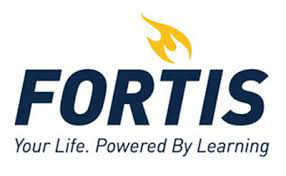November 24th, 2014 by schoolbound
 Current statistics reveal that college is becoming a growing reality for today’s minority students. In fact, Hispanic, African-American and Asian enrollments have continued to increase over the years while enrollment levels for Caucasian students have dropped. This may be because of the many additional financial aid resources that are available to minority students. Over the years, several organizations have pioneered programs to increase college access to those who are traditionally underrepresented on college campuses, helping thousands to cover tuition and other related expenses. Although some of these programs target students who have financial need, many reward students who perform well in the classroom, participate in sports, volunteer in their communities, or engage in other extracurricular activities. Unfortunately, some students may not be aware of these financial aid opportunities. Students who identify themselves as being part of a minority group should consider some of the following resources when looking for college scholarships, grants and other financial aid assistance.
Current statistics reveal that college is becoming a growing reality for today’s minority students. In fact, Hispanic, African-American and Asian enrollments have continued to increase over the years while enrollment levels for Caucasian students have dropped. This may be because of the many additional financial aid resources that are available to minority students. Over the years, several organizations have pioneered programs to increase college access to those who are traditionally underrepresented on college campuses, helping thousands to cover tuition and other related expenses. Although some of these programs target students who have financial need, many reward students who perform well in the classroom, participate in sports, volunteer in their communities, or engage in other extracurricular activities. Unfortunately, some students may not be aware of these financial aid opportunities. Students who identify themselves as being part of a minority group should consider some of the following resources when looking for college scholarships, grants and other financial aid assistance.
Hispanic Scholarship Fund
Founded in 1975, the Hispanic Scholarship Fund (HSF) has awarded over $360 million in scholarships. The organization helps students find financial and educational resources they need to achieve a college education. Each year, HSF awards over 4,000 scholarships to high school and college students. Students can also find private scholarships using their Latino College Dollars tool.

United Negro College Fund
Since 1985, the United Negro College Fund (UNCF) has awarded more than $600 million to more than 44,000 students. They also provide assistance through internships, mentorships and leadership development programs. Students interested in applying to any of the UNCF scholarship programs must complete an online application.

American Indian College Fund
It is estimated that less than five percent of American Indian students can afford to attend college without some form of financial assistance. In an effort to increase access to college, the American Indian College Fund was created in 1989. Today, they provide scholarships to American Indian students attending both tribal and non-tribal colleges.

Asian and Pacific Islander American Scholarship Fund
Since 2003, the Asian and Pacific Islander American Scholarship Fund (APIASF) has awarded more than $60 million in scholarships through its two programs: the APIASF General Scholarship and the Gates Millennium Scholarship. APIASF provides assistance to students who live at or below poverty level, are the first in their families to attend college, and have a strong commitment to community service and academics.

The Korean American Scholarship Foundation
The Korean American Scholarship Foundation (KASF) has six regional chapters that operate independently to raise funds, manage programs and award scholarships within their territories. KASF offers scholarships to qualified Korean students (and non-Korean students, if funding is available) who are enrolled full-time in college. Applicants are evaluated based on financial need, scholastic achievement, community service and other factors. College scholarshipsrange in value from $1000 to $5,000 each.
Although being a minority does not automatically guarantee students will receive financial aid, it is important for minority students to check with the financial aid offices at their intended colleges to see what resources and funding may be available. Students should also remember that some minority scholarships and grants may not be limited to one specific group, so it’s best to always check the criteria for awards before dismissing them. Additional resources for minorities include the Hispanic Scholarship Fund, Congressional Hispanic Caucus Institute, the Jackie Robinson Foundation, The LAGRANT Foundation, and free online scholarship search services, such as ScholarshipExperts.com.


